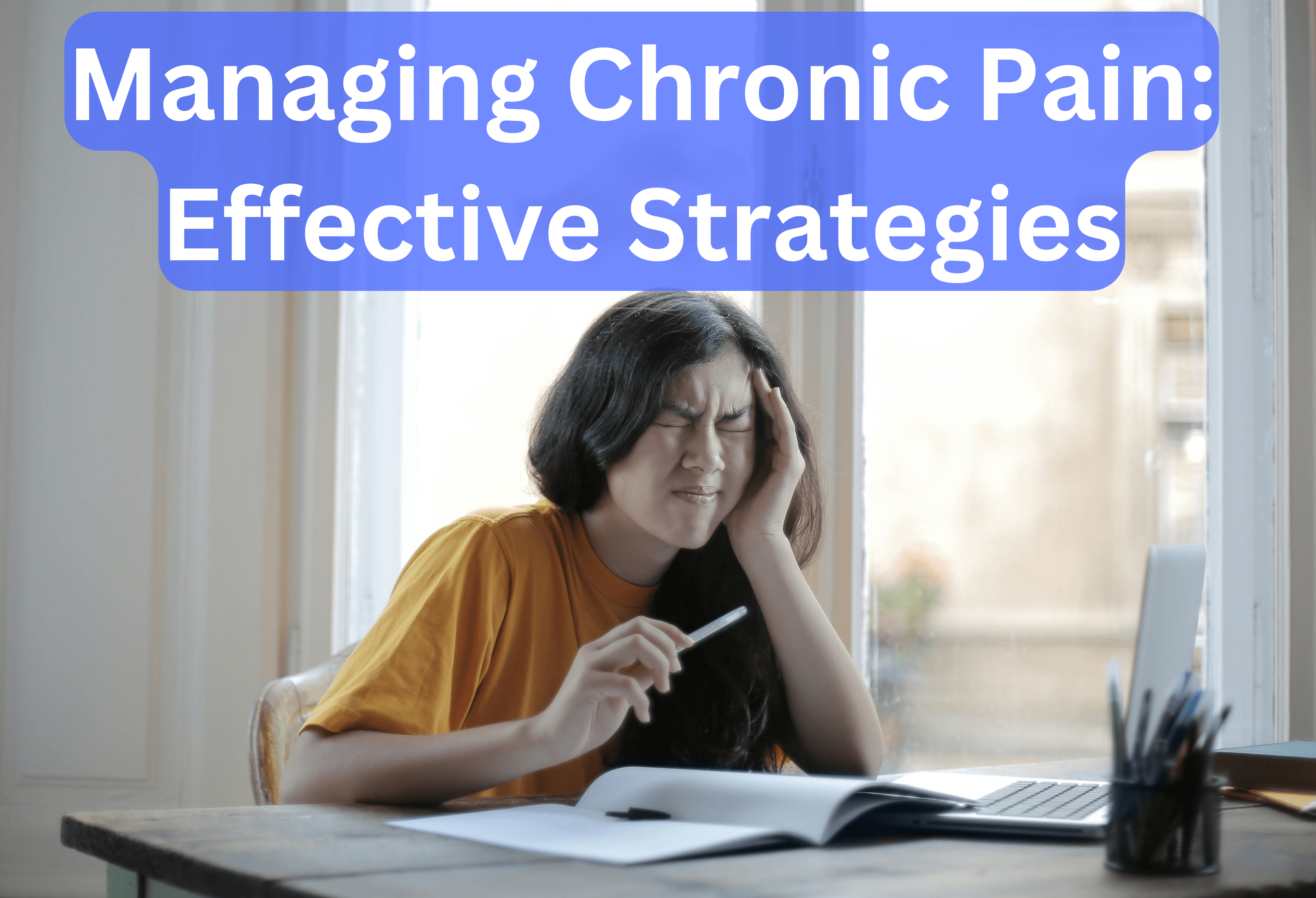Managing Chronic Pain: Effective Strategies
Introduction:
Enduring chronic pain can be all-encompassing, casting a shadow over every facet of daily existence. However, with the right strategies, individuals can effectively manage their pain and regain control. In this comprehensive guide, we’ll explore various techniques, from holistic remedies to medical interventions, aimed at providing relief and enhancing overall well-being.
Understanding Chronic Pain
Long term pain, lasting beyond the typical recovery period of an injury or illness, can result from various conditions such as arthritis, fibromyalgia, or nerve damage. Unlike acute pain, which serves as a warning sign of injury or illness, persistent pain, impacting physical and mental health.
Keeping the human aspect in mind, let’s delve into how we can control long-term pain, studying different remedies and interventions.
Holistic Approaches
Holistic approaches focus on treating the whole person, not just the symptoms. Techniques such as acupuncture, yoga, and mindfulness meditation can help manage chronic pain by promoting relaxation, reducing stress, and improving overall well-being.
By embracing holistic methods, individuals can find relief from persistent pain while nurturing their mind, body, and spirit.
Medical Interventions
Medical interventions for chronic pain may include medications, injections, or surgical procedures. Pain-relieving medications such as nonsteroidal anti-inflammatory drugs (NSAIDs) or opioids may be prescribed to manage symptoms. In some cases, nerve blocks or steroid injections can provide targeted relief, while surgical options may be considered for certain conditions.
Medical interventions offer targeted relief for persistent pain, addressing the underlying causes and improving quality of life.
Lifestyle Changes
Making lifestyle changes can have a significant impact on managing chronic pain syndrome. Regular exercise, proper nutrition, and adequate sleep can help reduce inflammation, improve mobility, and enhance overall well-being. Additionally, stress management techniques such as relaxation exercises or therapy can help individuals cope with pain more effectively.
By adopting healthy lifestyle habits, individuals can empower themselves to take control of their long term pain and live life to the fullest.
Managing Chronic Pain: Effective Strategies For Relief
Effective management of chronic pain requires a multifaceted approach that addresses the physical, emotional, and psychological aspects of the condition. By combining holistic remedies, medical interventions, and lifestyle changes, individuals can find relief from pain and improve their overall quality of life.
The key to managing persistent pain lies in finding a personalized approach that works best for each individual. By exploring various strategies and seeking support from healthcare professionals, individuals can overcome the challenges of persistent pain and reclaim their lives.
Frequently Asked Questions (FAQs):
Q: Can chronic pain be cured completely?
A: Chronic pain is often a complex condition that may not have a definitive cure. However, with proper management techniques, individuals can experience significant relief and improve their quality of life.
Q: Are there any natural remedies for long term pain?
A: Yes, several natural remedies, such as acupuncture, herbal supplements, and essential oils, may provide relief from long term pain. Before embarking on any new treatment regimen, it’s crucial to confer with a healthcare professional to ensure safety and efficacy.
Q: How does exercise help with chronic pain?
A: Exercise can help reduce inflammation, improve flexibility, and release endorphins, which are natural pain relievers. Low-impact activities such as swimming, walking, or yoga are often recommended for individuals with Chronic pain syndrome .
Q: What role does stress play in chronic pain?
A: Stress can exacerbate persistent pain by increasing muscle tension and triggering inflammatory responses in the body. Learning stress management techniques such as deep breathing, meditation, or mindfulness can help individuals better cope with pain.
Q: Is it normal to experience depression with Chronic pain syndrome?
A: Long term pain can significantly impact mental health and may lead to feelings of depression or anxiety. For those grappling with these symptoms, reaching out to a mental health professional is paramount for obtaining support and guidance.
Q: How can I find the right treatment plan for my persistent pain relief?
A: Finding the right treatment plan often requires a trial-and-error approach, as what works for one person may not work for another. It’s essential to work closely with healthcare professionals to develop a personalized treatment plan tailored to your specific needs.
Conclusion:
Managing Chronic pain syndrome requires patience, persistence, and a comprehensive approach that addresses the physical, emotional, and psychological aspects of the condition. By combining holistic remedies, medical interventions, and lifestyle changes, individuals can find relief from pain and improve their overall quality of life.





1 thought on “Powerful Approaches to Chronic Pain Relief: Mind, Body, and Spirit in 2025”